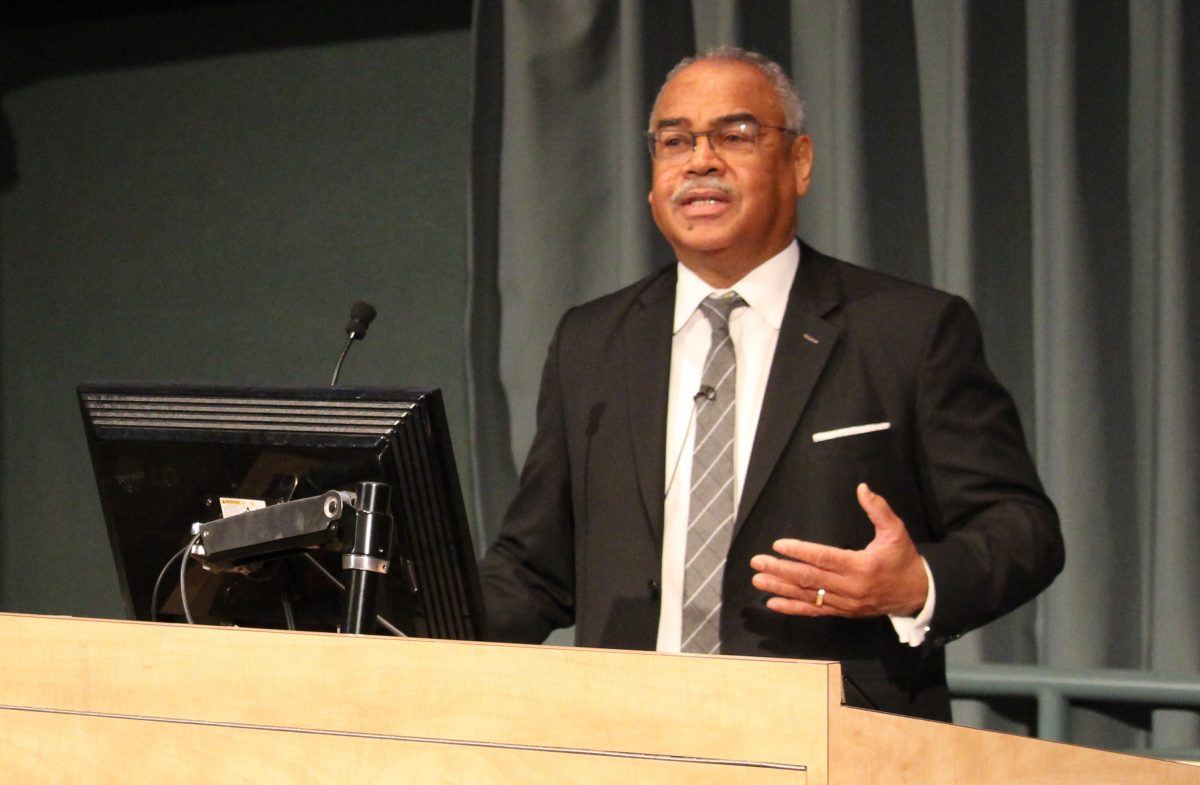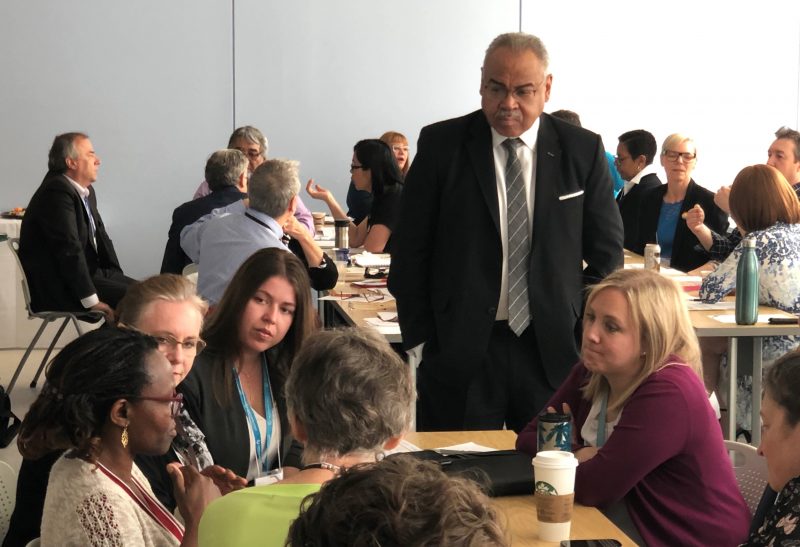
Dr. Ronald Wyatt gives his lecture, entitled 'Addressing Whiteness: Clearing a Path,' on May 27 at the Bannatyne campus.
U.S. expert: stand up against whiteness and racism
Dr. Ronald Wyatt wants people to recognize that racism is real and that it hurts communities.
Wyatt, the chief quality officer at Cook County Health in Illinois, one of the largest public health systems in the United States, led a workshop and gave a lecture on May 27 at the Bannatyne campus. His focus was on confronting and breaking down institutional racism to create health equity for all.
During his lecture, Addressing Whiteness: Clearing a Path, Wyatt said that white people tend to create the dominant images in the world. This constructed image of whiteness shapes society, he said.
“Middle-class straight white men’s opinions are seen as standard, but they’re driven from self-interest and selfishness,” he said. “So when we begin to understand and undo this concept of whiteness, we can begin to see the impact that it’s had.”

Dr. Ronald Wyatt’s workshop focused on dismantling institutional racism to achieve health equity.
Wyatt challenged the audience to stand up against whiteness and racism.
“Will you disrupt or will you embrace your privilege?” he said. “Will you speak up, or will you suffer the silence of the grief and violence that racism perpetuates? Unite. Connect. Harmonize.”
Wyatt provided strategies to reduce and eliminate racism. He said the first step is to admit that we need to condemn racism. He also said that people should interact with others who don’t look like them and to seek harmony within groups that are white and non-white.
“That’s hard work,” he said. “It’s not; it’s heart work. And if it’s heart work, it becomes easy.”
Wyatt also offered suggestions for organizations to become anti-racist. He said they must engage in conversations about race, make it part of the culture, call out racist behaviour and be advocates.
“When we start to truly look at the things that kill non-white people, we have to have the courage to say that the root cause is racism,” he said. “But there is hope. And I’ll say hope is not a plan. We have to have a plan, but there is hope.”
Dr. Marcia Anderson, executive director, Indigenous Academic Affairs, Ongomiizwin – Indigenous Institute of Health and Healing, introduced Wyatt. Following the lecture, she said his message is important to Manitobans.
“I’m hoping that people will understand we cannot provide quality health care in Manitoba if we are not willing to address racism, and for us to be willing to address racism, the starting point is to be able to talk about race, racism and whiteness,” Anderson said. “So I’m hoping that this will be a turning point in shifting our discourses and strengthening both our commitment and capacity to provide high-quality anti-racist health care.”
Wyatt’s workshop focused on dismantling institutional racism to achieve health equity. The workshop was targeted towards health care providers, community members and staff from regional health authorities.
Thomas Beaudry, a resource planner with Manitoba Sustainable Development, attended the workshop. He said he was there because as an Indigenous man, he deals with racism daily and he was looking for new tools to address it.
“I learned that we still look at colour,” he said. “We still look at colour as one skin and how we handle situations. How do we overcome that barrier? I think it’s going to take time. There’s no magic wand that’s going to cure that.”
The presentation was sponsored by the Rady Faculty of Health Sciences’ Indigenous Institute of Health and Healing-Ongomiizwin, Winnipeg Regional Health Authority and George & Fay Yee Centre for Healthcare Innovation.






